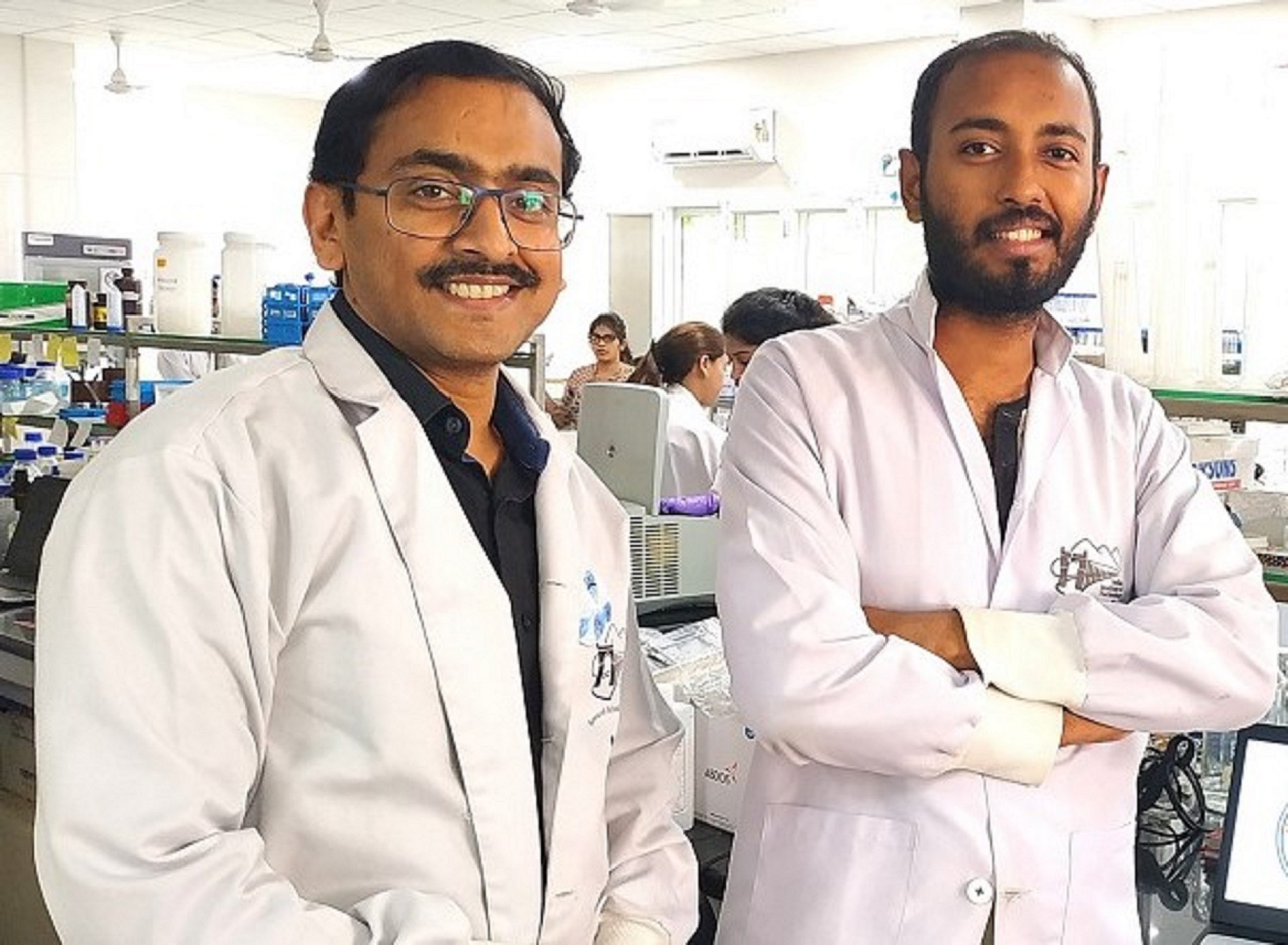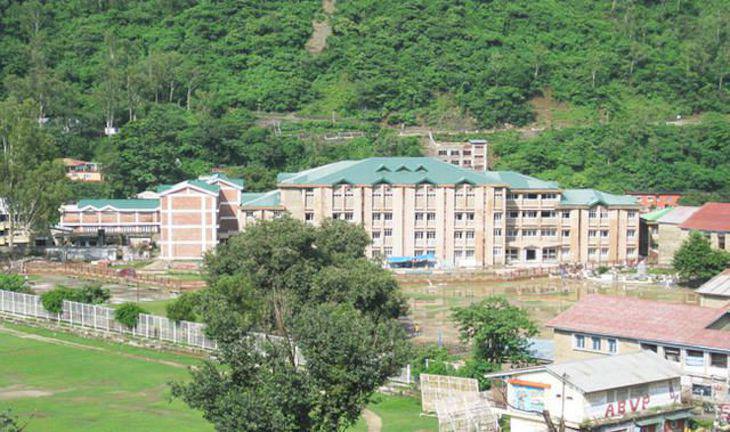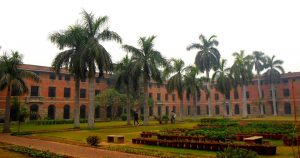Best Books to Read in 2023
Best Books to Read in 2023 Are you a bookworm or a bibliophile, if yes, then this is the ...
IIT Mandi researchers have discovered the molecular mechanism by which excess sugar consumption causes fatty liver disease.
The research has conclusively shown that excessive consumption of sugar leads to fatty liver.

NAFLD is a medical condition in which excess fat deposits in the liver.
The disease starts silently, with no overt symptoms for as much as two decades.
If left untreated, the excess fat can irritate the liver cells, resulting in scarring of the liver (cirrhosis), and in advanced cases, can even lead to liver cancer.
The treatment of advanced stages of NAFLD is difficult.
IIT Mandi researchers used complementary experimental approaches to establish the underlying biochemical relationship between the consumption of excessive sugar and the development of ‘fatty liver’, medically known as Non-Alcoholic Fatty Liver Disease (NAFLD).
This work by IIT Mandi researchers offers incentive to the public to reduce sugar intake to stop NAFLD in its early stages.
Dr Prosenjit Mondal, Associate Professor, School of basic Sciences led the team of IIT Mandi researchers.
Their work has been published in the journal of Biological Chemistry.
Read More – Easiest exams in India
The research paper has been co-authored by Dr Prosenjit Mondal along with his research scholars, Mr. Vineeth Daniel, Ms. Surbhi Dogra, Ms. Priya Rawat, Mr. Abhinav Choubey from IIT Mandi, in collaboration with Dr. Mohan Kamthan and Ms. Aiysha Siddiq Khan from Jamia Hamdard Institute, New Delhi, along with Mr. Sangam Rajak from SGPGI, Lucknow.
Speaking about the work done by IIT Mandi researchers, Dr. Prosenjit Mondal said the molecular mechanisms that increase hepatic DNL due to overconsumption of sugar have not been clear.
Our goal was to unravel this mechanistic pathway between excessive sugar consumption and onset and development of fatty liver Through DNL, said Dr. Prosenjit who led the team of IIT Mandi researchers.
India is the first country in the world to identify the need for action on NAFLD and with good reason, say IIT Mandi researchers.

The prevalence of NAFLD in India is about 9% to 32% of the population, with the state of Kerala alone having a prevalence of 49% and a staggering 60% prevalence among obese school-going children.
What causes NAFLD? One of the cause is said to be consuming both table sugar and other form of carbohydrates more than the required quantities.
Consumption of excess sugar and carbohydrates causes the liver to convert them into fat in a process called hepatic De Novo Lipogenesis or DNL, which leads to fat accumulation in the liver, say IIT Mandi researchers.
Through a complementary experimental approach involving mice models, the IIT Mandi researchers have shown the hitherto unknown link between the carbohydrate-induced activation of a protein complex called NF-κB and increased DNL.
‘Our data indicates that the sugar-mediated shuttling of hepatic NF-κB p65 reduces the levels of another protein, sorcin, which in turn activates liver DNL through a cascading biochemical pathway,’ said the scientist who lead IIT Mandi researchers.
The unravelling of the molecular link between sugar and fat accumulation in the liver is key to developing therapeutics for the disease.
Team of IIT Mandi researchers have shown that drugs that can inhibit NF-κB can prevent sugar-induced hepatic fat accumulation.

They have also shown that the knockdown of sorcin reduces the lipid-lowering ability of the NF-κB inhibitor.
IIT Mandi researchers’ finding that NF-κB plays a key role in lipid accumulation in the liver opens up a new avenue of therapeutics for NAFLD.
NF-κB also plays a role in other diseases that involve inflammation, such as cancer, Alzheimer’s disease, atherosclerosis, IBS, stroke, muscle wasting and infections and scientists around the world are developing therapeutics that can block NF-κB.
The IIT Mandi research shows that NAFLD can now be added to the repertoire of diseases that can be treated with drugs that block NF-κB.
From the preventive angle, the work of IIT Mandi researchers has conclusively shown that excessive sugar intake leads to a fatty liver.
This should offer incentive to the public to reduce sugar intake to stop NAFLD in its early stages.
About IIT Mandi
Since the first batch of 97 students joined in July 2009, IIT Mandi has grown to currently host 125 faculty and 1,833 students who are enrolled in various programmes of studies in undergraduate, postgraduate and research programmes, and 1516 alumni.
IIT Mandi is a fully residential campus with 1.4 lakh sq. m. buildings completed. It has a guest house with 88 rooms, a 750-seater Auditorium, campus school, sports complex and hospital.

IIT Mandi has four Academic Schools and three major Research Centers. The Schools are: School of Computing and Electrical Engineering, School of Basic Sciences, School of Engineering, and School of Humanities and Social Sciences.
The Centers are: Advanced Materials Research Centre (AMRC; set up with an investment of Rs. 60 crores), Centre for Design and Fabrication of Electrical Devices (C4DFED; has Rs. 50 crores worth of fabrication tools), and BioX Centre (has acquired research equipment worth Rs. 15 crores).
In 2017, the Department of Biotechnology, Government of India, selected IIT Mandi to lead the prestigious Rs. 10 crore FarmerZone Project.

Best Books to Read in 2023 Are you a bookworm or a bibliophile, if yes, then this is the ...

In the exhilarating journey of 10 Proven Memorize Techniques for Students learning, memory is your trusty companion. Whether ...

Top 20 toughest exams in world is about exams in the world that required very hard work to ...

Top 20 toughest exams in India - Exams are the perhaps most toughest moments for any student. A ...

Top 20 Colleges of DU Getting admissions to the top 20 colleges of DU is a dream for every ...

Top 20 NITs of India - Amongst the 31 NITs in India, today, we are talking ...

Here are the Top 12 Artificial Intelligence in Mumbai. Artificial intelligence (AI) refers to the simulation of human ...

As you stand on the Best Science Courses after 12th academic journey, the realm of science beckons, offering ...
Millions of students have entrusted CollegeChalo to facilitate their seamless and smooth admission process to their dream colleges and universities. With CollegeChalo, you can gain a competitive edge by easily accessing exam and course details to stay ahead of the admission journey. What are you waiting for?
Search your dream college